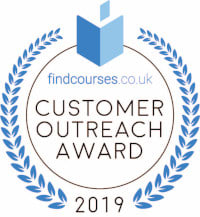Course description

MSP Project Management - Foundation
MSP - Managing Successful Programmes creates a structured framework for organizations of all sizes and from all sectors to improve practices, offer better services and more effectively prepare for the future. It is a best practice guide that provides and maintains a strategic view over the set of projects, aligning and co-ordinating them within a programme of business change in support of specific business strategies.
MSP Passport is an accredited eLearning package for MSP - Managing Successful Programmes. It covers the syllabus and competencies for both Foundation as well as Practitioner level study and qualification. This course however covers the Foundation level. This course aims to provide you with a straight forward route to becoming a fully certificated Registered Practitioner in your own time and at your own pace.
Upcoming start dates
Outcome / Qualification etc.
This course specifically provides the background knowledge for the related certification exam (which learners must pass in order to achieve the formal Foundation Certification). IMPORTANT: Please note that the certification EXAM IS NOT INCLUDED with this course. The exam can be purchased with the +official exam option.
- Provide Delegates with an understanding of the benefits and principles underlying a structured approach to programme management
- Apply the principles of MSP to a programme within a work environment
- Operate effectively with colleagues and managers within a structured programme and project management environment
- Enable delegates to understand the MSP framework to be prepared to sit the APM Group MSP Foundation and Practitioner exams
- Success in the Foundation & Practitioner Exams provides candidates with the pre-requisites required to sit the MSP Advanced Practitioner exam (separate course)
Training Course Content
1) Getting Started - What is a Programme? What is Programme Management? Why use Programme Management? The characteristics of Portfolios, Programmes and Projects. 'Drivers for change' and the programme environment. Types of Programme and Programme impacts.
2) Introduction to MSP - MSP Terminology. The MSP 'framework'. MSP structure, including Principles, Themes and The Transformational Flow.
3) Organization and Programme Office - The MSP Organisation Structure. MSP Roles and Responsibilities, including Sponsoring Group, Programme Board, Senior Responsible Owner, Programme Manager, Business Change Manager and Business Change Team, and the Programme Office.
4) Vision - What is a vision? What are the characteristics of a good Vision Statement? When and how is the Vision Statement developed and maintained?
5) Leadership and Stakeholder Engagement - What is leadership? What is Business Change Management? What is a stakeholder, and what are the steps in the Stakeholder Engagement cycle, including the techniques and documents involved?
6) Benefits Management - What are benefits and dis-benefits? Alignment with corporate objectives. How and why to categorise benefits. The Benefits Management Cycle, including identifying benefits, planning and delivering benefit realisation, and reviewing benefits.
7) Blueprint Design and Delivery - What is the blueprint and how is it designed? What is P.O.T.I.? How to design blueprint delivery, plan step-changes through tranches, and develop a programme schedule.
8) Planning and Control - Developing the programme plan. Planning and managing resources. Designing the Projects Dossier and developing the programme schedule.
9) The Business Case - What is the Business Case and what does it contain? Where does it begin, how is it developed, and how and when is it reviewed?
10) Risk and Issue Management - Sources and perspectives of risks and issues. Managing risks and the Risk Management Framework. Managing issues and the Issue Management Framework. Change Control and Configuration Management.
11) Quality and Assurance Management - What is quality and assurance? The scope of programme quality management. Assurance management approach, principles and techniques.
12) Transformational Flow - Introduction to The Transformational Flow. What are the processes and activities for Identifying a Programme, Defining a Programme, Managing the Tranches, Delivering the Capability, Realising the Benefits and Closing a Programme
13) Examination Approaches - Introduction to the MSP Foundation and Practitioner Exams. Style of questions and recommended approaches. All modules include:
- Interactive Tasks
- Visualisation Mind Maps
- Foundation & Practitioner Exam Simulations
Why choose First Response Training & Consultancy Services Ltd
Founded in 1997
Delivering training to over 70,000 learners per year
A team of more than 80 experienced trainers across the UK
Customer Outreach Award 2019

We believe that it should be easy for you to find and compare training courses.
Our Customer Outreach Award is presented to trusted providers who are excellent at responding to enquiries, making your search quicker, more efficient and easier, too.
Expenses
For information on costs, please contact the institute.
Request info
Get Inspired! Watch the Video
First Response Training - One of the leading suppliers of Health & Safety training in the UK
First Response Training (FRT) is a leading national training provider, delivering learner-centred, interactive training programmes tailored for a diverse range of industries across the UK. Working with regional and national care providers, local authorities, schools, colleges and universities, hospitals, police...

